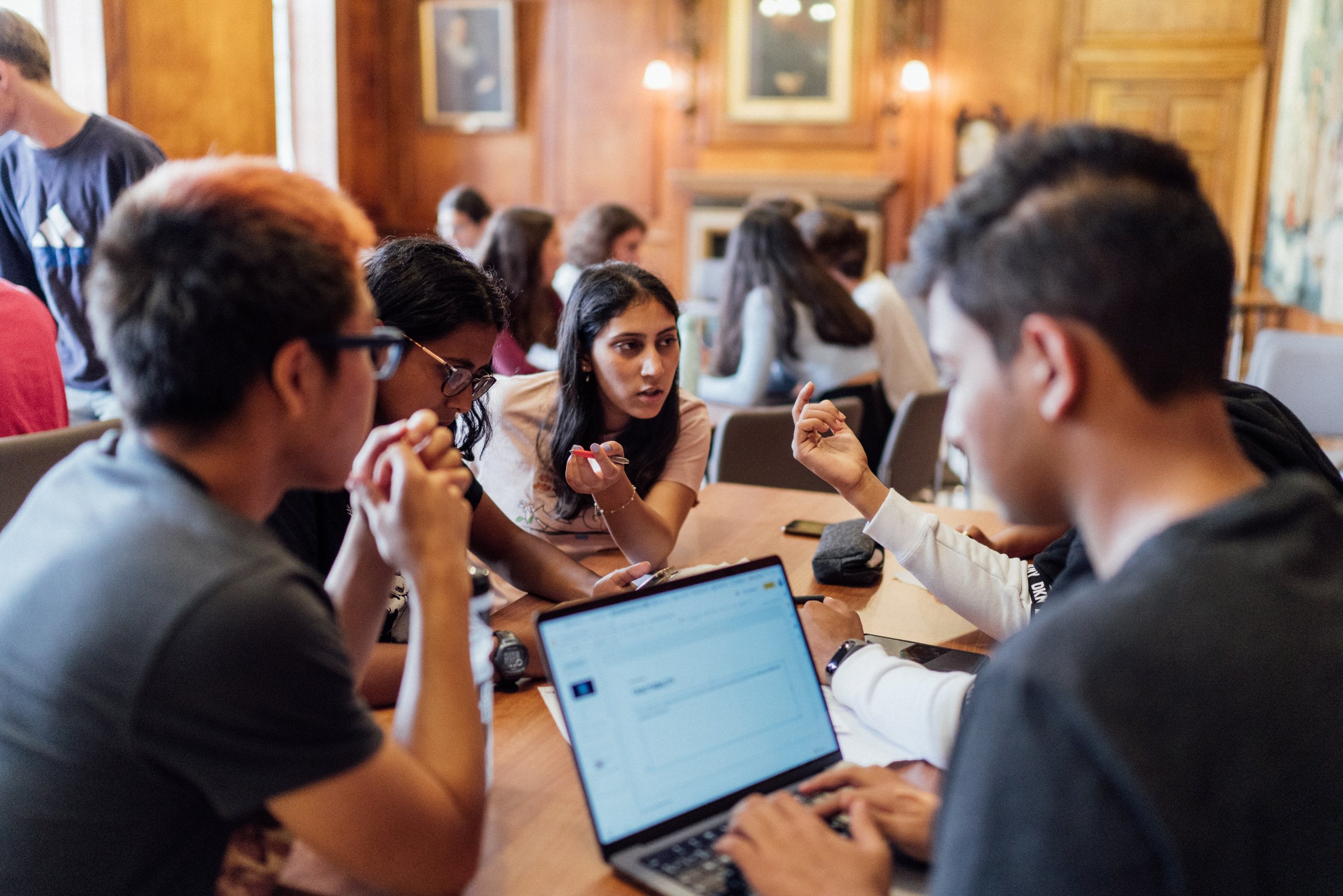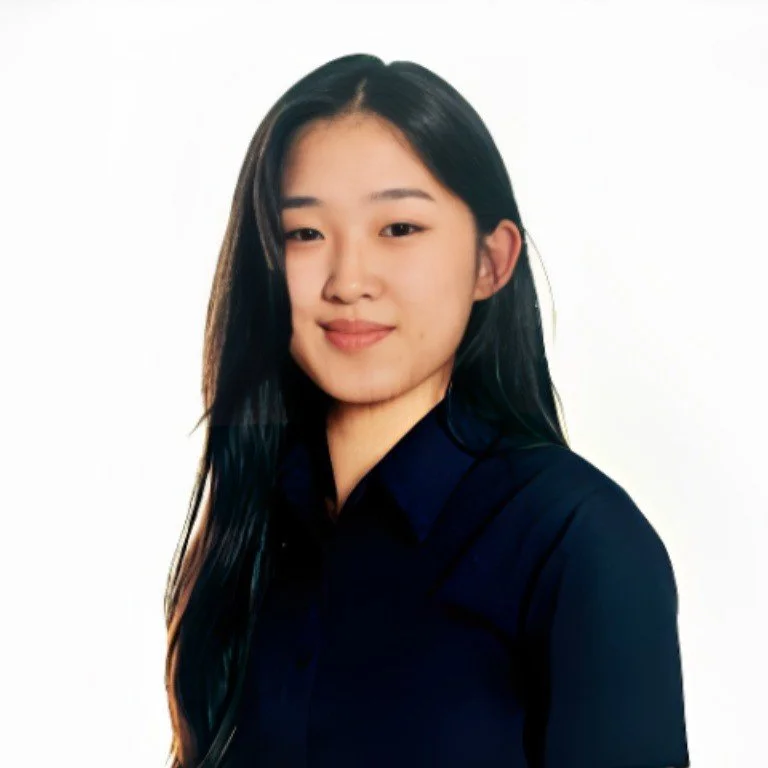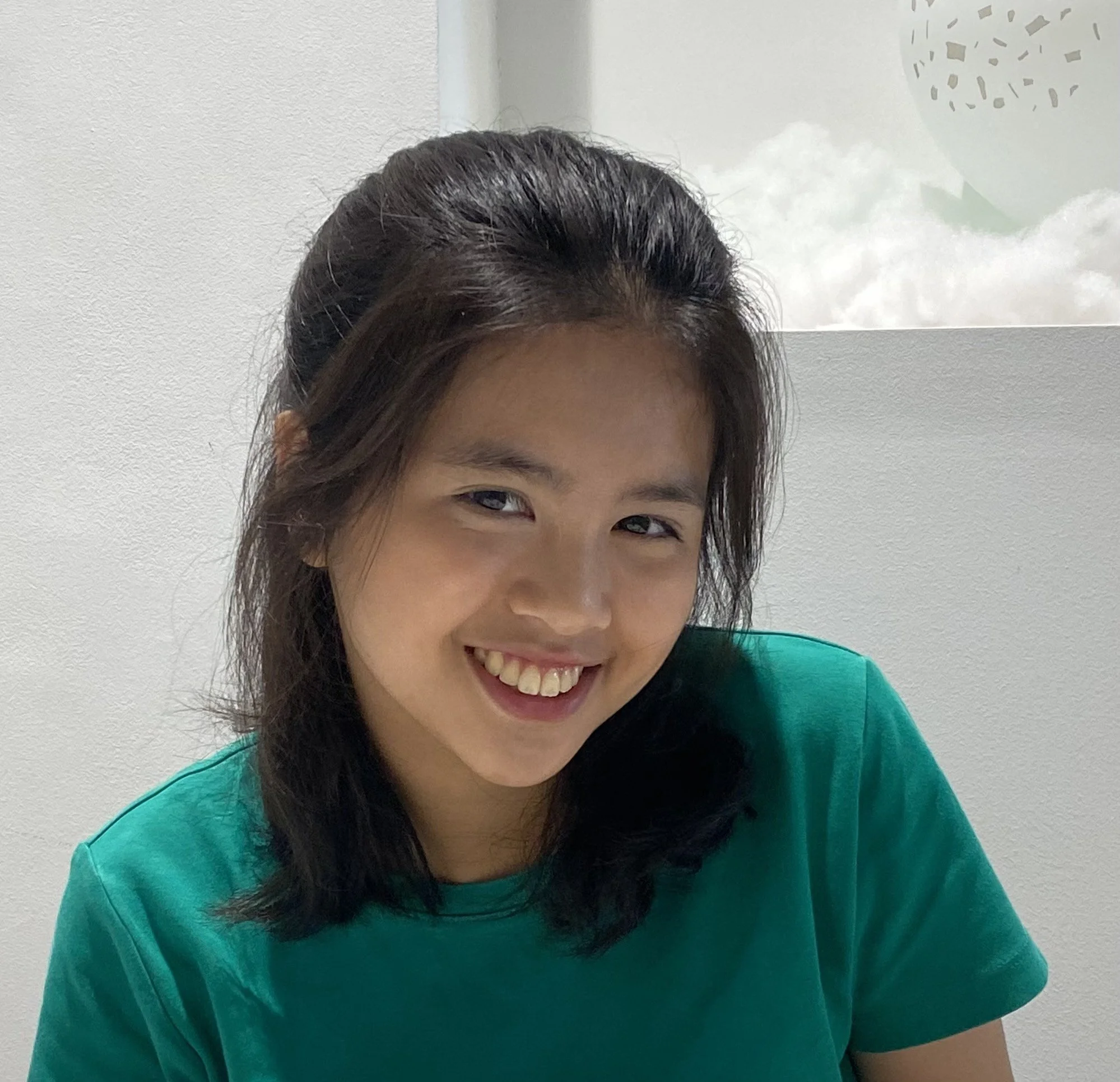
History to Shape History
(for the better)
Learn from the lessons of history to make the future better
Designed for students also interested in economics, politics, philosophy, or law!
Online program exploring how you can use the lessons of history to make a positive impact and steer humanity onto a better path.
Dates: 19 January to 1 March
Who: Smart, curious, and ambitiously altruistic students aged 15-19 who haven’t yet started university
Cost: Choice of tiers based on ability to pay (i.e. free if needed!)
Top participants receive custom mentorship, referrals to selective next-steps, access to funding, and ongoing support!
What you can expect
Facilitated discussion groups with a cohort of smart, curious students
Talks and Q&As with professionals using history to tackle pressing problems
Mentorship and referrals to pursue follow-up projects
Support with applications and Oxbridge/Ivy interviews

97% of participants would recommend!
Surveyed at the end of our summer cohort, 97% of our 300+ Finalists ranked 7/10 or above on their likelihood to recommend this course; 35% said 10/10!
Plus, nearly 90% reported feeling more confident in their ability to make a positive impact after their course!
Course overview
-
History never repeats itself, but we can see patterns
Not all history is equal(ly useful)
Example resources:
🎧 The Rest is History podcast: “The Lessons of History”
📚 Book by Richard J. Evans: In Defence of History
📝 Report by Jamie Harris: “What Can the Farmed Animal Movement Learn from History?”
-
Identifying pivotal moments in our past and future
Where should we actually steer it to?
Example resources:
🎧 Blog readout by Holden Karnofsky: “Summary of history (empowerment and well-being lens)”
📚 Book by William MacAskill: What We Owe the Future
🎥 Video by Rational Animations: “Can we make the future a million years from now go better?”
-
Preserving or shaping the future: quantity vs quality
Learning from past revolutionaries and technologies
Example resources:
🎧 Podcast by 80,000 Hours: How long did it take computers and electricity to have economy-wide effects?
📚 Book by Leslie Crutchfield: How Change Happens: Why Some Social Movements Succeed While Others Don’t
📝 Forum post by Jamie Harris: “Key Lessons From Social Movement History”
-
What are the most important questions in the subject?
Research with real results: EPQ, thesis, and beyond
Example resources:
🌐 Webpage by Effective Thesis: “Research topics we recommend” (can be filtered to history)
📝 Forum post by Center for Applied Rationality: What are the important problems of your field?
🎥 Workshop by Michael Aird: “Building a Theory of Change for Your Research”
-
Subjects to supplement or supplant history: alternatives that use similar skills
Considering careers that capitalise on your strengths
Example resources:
🎧 Readout of an article by 80,000 Hours: “How to find the right career for you”
📑 Directory by Leaf: “Different potentially impactful career pathways, organised by degree subjects”
📝 Article by Probably Good: “The SELF Framework” — a simple tool to help you assess a role’s potential for improving the world
Weekly structure
-
Dive deep into intriguing historical topics using our curated resources or your own research. Challenge your assumptions with thought-provoking new perspectives, organised on our online learning platform with interactive videos, engaging quizzes, and other activities.
-
Weekly discussion with a Leaf facilitator and small-group breakouts to develop your critical thinking in conversation with intelligent, interesting, like-minded teens.
We’ll do our best to find a slot that works around your other commitments!
-
Read around the topic and write up your hot takes. Get feedback from peers and Leaf staff. Win prizes!
-
Meet professionals who studied history and are using what they learned to change the world. Discuss and ask tailored questions in exclusive event for a limited number of Fellows with a specific interest in the professional’s area of expertise.
-
Share your own knowledge plus join sessions run by Fellows and alumni! Meet inspiring peers with shared interests; collaborate on projects; discover exciting new ideas.
-
Discord channel, paired 1:1s, and opportunities to get to know peers with different backgrounds but shared passions. Share opportunities or enthuse about your niche historical hobbies.
Meet some staff and former speakers
Our History course is supported by a wide range of experts, facilitators, and alumni:
Rutger Bregman
Bestselling author & historian
-
Rutger’s books Humankind (2020) and Utopia for Realists (2017) were both New York Times Bestsellers and have been Giving What We Can translated in more than 40 languages. They take a historical perspective on human nature. He’s a member of Giving What We Can and his TED talk on poverty has been viewed 1.6 million times. He has a Master’s Degree in history from Utrecht University.
Lara Thurnherr
Rhyme (history research consultancy)
-
Lara studied History and Public Law at the University of Bern. She is the founder of Rhyme, a history research consultancy focused on answering historical questions relevant to the challenges today of governing AI. She is also a Tech Diplomacy Affiliate at the Simon Institute for Longterm Governance, and recently worked on research for the grant-making foundation Open Philanthropy.
Waqar Zaidi
LUMS & Centre for Governance of AI
-
Waqar is an Associate Professor of History at Lahore University of Management Sciences and a Research Affiliate at GovAI. His research is focused on the history of technology and international relations in the twentieth century. His first book, on Aviation, Atomic Energy, and the Search for International Peace 1920-50, was published in 2021. He holds a BA in Physics from Oxford University, and an MSc and PhD in History of Science, Technology, and Medicine from Imperial College London.
Joe Mansour
Foreign Office (UK civil service)
-
Joe has a first class degree in history from Oxford University. He explored working directly with nonprofits tackling poverty or protecting democracy and human rights, but soon came to focus on a policy career. He has worked in 5 different UK government departments and is currently an Energy Diplomat at the Foreign, Commonwealth and Development Office.
Charlotte Darnell
Centre for Effective Altruism
-
Charlotte studied History and Modern Languages at the University of Exeter. Charlotte has done operations work for various organisations seeking to build a better future, including Leaf. She has organised a conference in Oxford exploring such themes. She works full time at the Centre for Effective Altruism; she first joined their events team, and has now transitioned to being a Community Liaison.
Natasha Misra
KCL PPE, Course Designer and Facilitator
-
Natasha is the course designer and facilitator of HSH. She is a PPE student at King’s College London and has been facilitating with Leaf for History and Maths since completing the History fellowship in 2023. She is the co-president of KCL’s EA Society, running events and fellowships for them, and has special interests in AI safety, feminism, and behavioural economics.
The opportunities don’t end after five weeks!
Learn more here about our referrals to top research programs, connection to experts and mentorship, support and funding for projects, and other ongoing Leaf alumni opportunities!

Alumni Perspectives
Where Leaf alumni are now
Oxford University
Cambridge University
Harvard University
London School of Economics
More questions? See our “FAQ” page.



























